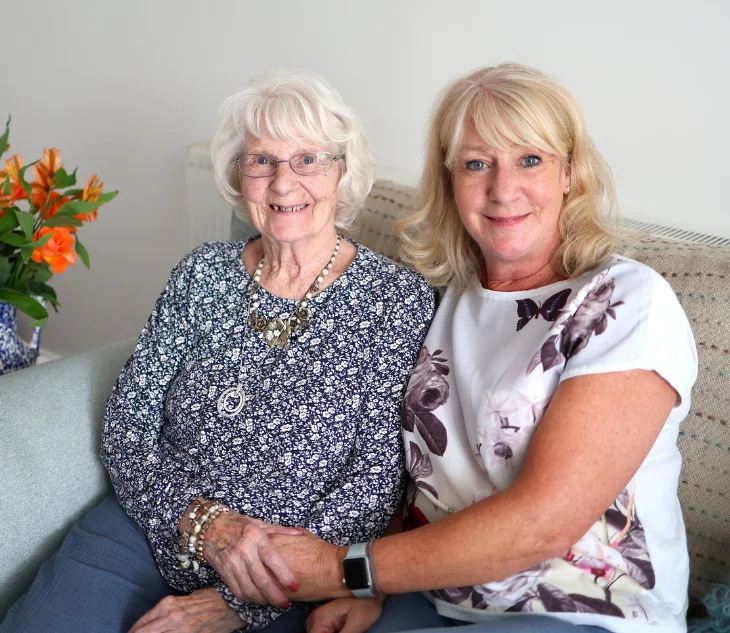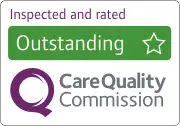Advice & Support
Facing the need to organise home care for the first time can be a worrying and distressing time, so here is some general advice if you are about to commence the journey of looking for help and want a better understanding of some of the key issues.
Speak to a care expert
- Personalised round-the-clock support - 24/7 expert care from a Caregiver who knows everything from your medication routine to how you like your cup of tea.
- A team that knows your area - Experienced Caregivers supporting families from Wolverhampton to Warwick and everywhere in between.
- Stay independent in familiar surroundings - Helping individuals remain at home, close to loved ones, local parks, and the high streets they know.




My mum’s got all her things around her, she’s got more freedom and 1-1 with the carers. She sleeps better, eats better, is more content and can go out when she likes.
Rated 9.9/10 on homecare.co.uk


One of the Top 20 Home Care Groups in 2024 - homecare.co.uk
What is live-in care and how does it work?
All too often, organising care can be at a moment of crisis owing to a sudden illness, hospital discharge or an accident such as a fall. This can often lead to the wrong care decision being made.
We know that over 70% of people want to remain living in their own homes as they grow older and often a move into a residential care environment can have a negative impact on a person’s wider health and well-being.
High quality ‘non-medical’ home care can enrich your life and enable you to live independently where you are most comfortable, happy and surrounded by the things you love ie your own home.
Home care is also good for the wider family as they are able to focus less on the stress of managing the day to day care arrangements and can spend more quality time with their loved ones.
What is non-medical care?
Most home care companies only provide non-medical care which means anything that is not ‘invasive’ or require nursing intervention, such as administering injections, changing wound dressings, cutting nails, and taking vital sign measurements.
Your Care and Support plan
You should expect your care provider to provide you with a detailed care plan that takes into account your background, normal routine, lifestyle and needs. As your circumstances and needs may change over time, the care plan should be regularly reviewed to ensure the service is still suited to your needs.


What are the different types of home care service?
Hourly Care
Your care provider will agree a care plan with you or your loved one that may include one or more calls per day to provide care and support.
Live-in care
Your care needs may be better supported with a live-in carer who lives with you (and your partner) in your home and is available as and when agreed to assist with your daily needs, which could include companionship, personal care, or home help.
24 hour care
In certain circumstances live-in care may not be appropriate, but around the clock 24 hour care may be the solution where a team of carers provide the necessary support on a shift basis that ensures a carer is available to you for 24 hours per day.
Who pays?
There are a number of potential funding types in England – details are as follows:
Local Authority
Following a care needs assessment which is normally completed by a social worker, you will also need to complete a financial ‘means test’ assessment. If your assets are less than £23,250 (excluding your home) your local authority may fund and provide your care or in some circumstances you may be required to pay for a proportion of the costs.
NHS Funding
In certain circumstances you may be eligible for NHS funded care – which is non means tested. This is often referred to as ‘CHC’ – continuing health care and is generally only made available to those with very complex needs or who are nearing end of life.
Local Authority - Direct Payment
If you are approved for local authority funding, you can choose to take a ‘direct payment’ which would result in you receiving the agreed/assessed funding amount directly into your bank account, so that you can then source your own care provider/s and manage the relationship with them directly.
Self-funding/Private Pay
With entitlement to local authority funded care being increasingly difficult to secure, more and more people are paying for their own care privately. In this instance you are free to choose your own care provider and agree the care support plan that best meets you or your loved ones needs.


Who reviews the quality of care being provided?
If you are in receipt of a local authority funded package of care, their providers will be subject to regular quality audits that are completed the local authority.
Additionally, any registered care provider that is providing a ‘regulated service’ is regulated by the Care Quality Commission (CQC).
A regulated service is deemed as personal care such as bathing, showering, hair washing, shaving, oral hygiene and nail care or toileting and continence management.
CQC regularly inspect providers and provide detailed reports on their key finding’s which can be found at https://www.cqc.org.uk/.
More questions...
Not always, and this will depend on the complexity of your needs and how often you require a visit. Also, if you are a couple and are both considering a residential care home, you will be paying for two rooms at double the cost.
Yes - many care providers have highly experienced and trained care teams who are able to provide home care for those living with specialist needs. These can include Learning disabilities, dementia, Parkinson’s, Multiple Sclerosis, Motor-neurone Disease, those who have suffered a stroke or have acquired brain injuries.
Yes - when families are informed that their loved one has a confirmed diagnosis of dementia, this can be devastating – and a hugely worrying time. However, those living with dementia can live independently at home, particularly if they are being cared for and supported by people who are experienced and fully understand the condition.
When considering a potential care provider, ask them to explain what specialist dementia training their carers receive to ensure they are able to manage the challenges of caring for someone with dementia. Also, what other expertise and resources are available within the organisation such as Dementia Champions or Memory Support specialists. Do they have experience working with Admiral Nurses and/or third-party specialist organisations such as the Alzheimers Society?
Yes, all home care staff should be fully insured for both personal and public liability. As your prospective care provider to confirm this.
All home care providers have a responsibility and duty of care to ensure they are fully complying with all Public Health and Government guidance on infection control including the use of Personal Protective Equipment (PPE) and regular PCT and/or Lateral Flow testing.
Ask your prospective care provider to confirm what measures they are taking to ensure you or your loved one’s safety.
Yes - care providers have a statutory obligation to undertake a criminal record search (DBS) on all carers prior to employing them – and these should be reviewed every 3 years.
Employers should also request professional and personal references.
Yes - the United Kingdom Homecare Association (UKHCA) is the professional association for home care providers and focuses on supporting our members to improve their business performance and the quality of their care services. Most good companies will be members of UKHCA.
Still have questions?
We're here to help you!


Speak to our live in care experts
Meet Stacey, your friendly expert care advisor
Navigating Live in care can feel overwhelming, and we understand how personal this decision is. We're here to guide you every step of the way—offering advice, reassurance, and ensuring your loved one receives the highest quality care.
- Quick 30-minute call: We'll discuss your situation and provide expert advice on care options.
- Book a free assessment: If you're ready, we can arrange a no-obligation assessment to match your needs.
- Fast, flexible care setup: We can start care within days if necessary, ensuring your loved one receives prompt, personalised support.
Inspected and rated
Outstanding by the CQC


FREE assessment enquiry
Stacey or one of our team of friendly and experienced care advisors, will be in touch as soon as possible by phone or email to discuss your live in care needs.